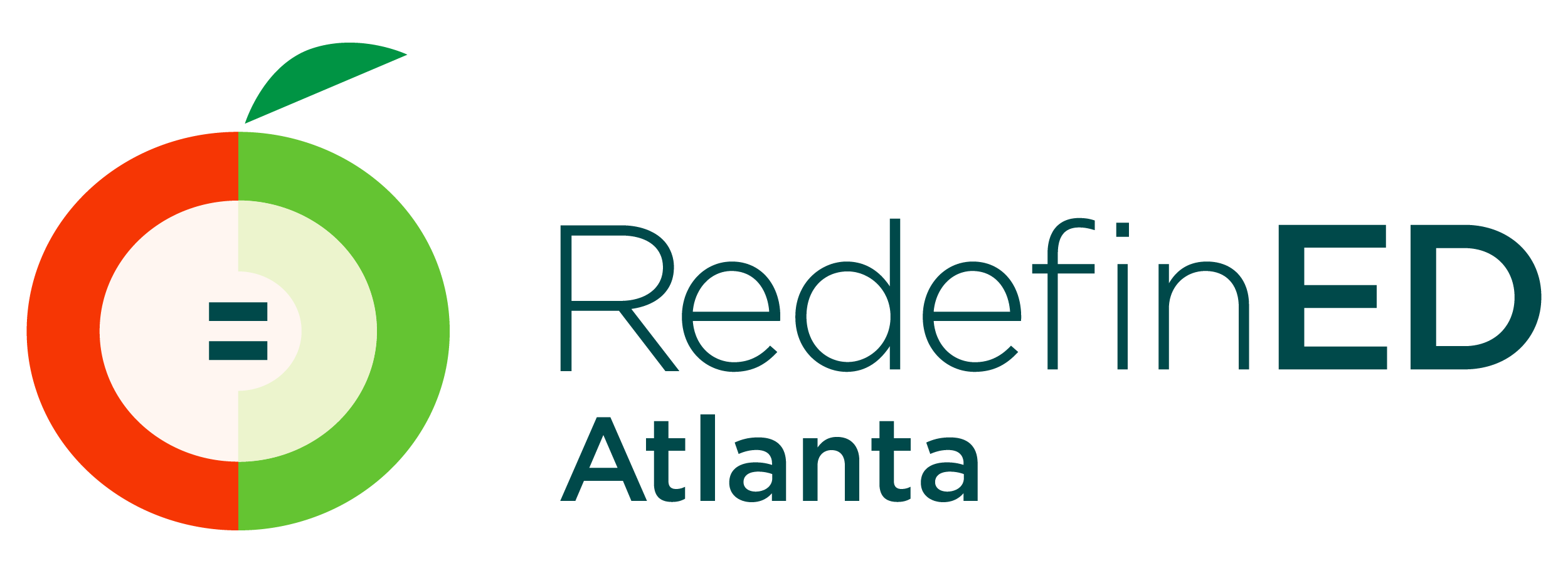This fall, Georgia released the 2023-24 Milestones results, the revised state test for students in 3-8 grade and high school.
Among the eight school districts in metro Atlanta, the lowest proficiency rate on the 8th-grade math exam was 23 percent, and the highest was 76 percent. Compare these results to the previous year, when the lowest district was 15 percent and the highest district was 58 percent, and it seems like students in metro Atlanta are making significant progress, right?
Probably, says Dr. Rebecca Parshall, the Director of Strategy & Development at Learn4Life, a regional education partnership.
“When tests change and when standards change, it can be tricky to put results side-by-side from one year to the next,” Parshall said. “We can’t compare how many students scored the highest level, distinguished, year-over-year, but we can look at proficient and above, and, cautiously, there appears to be good news there.”
As an eight-county average, it appears the region improved from 37 percent proficient (and above) to 46 percent in 8th-grade math.
Parshall added that test scores disaggregated by student demographics will be released in the coming months, and that data will provide more of a sense – though still inconclusive – of the extent to which students are advancing.
The delayed release of this year’s Milestones results has significantly impacted many families, including Miesha Lanes, an Atlanta Public Schools parent.
“My son is typically placed in advanced math classes, but this year, due to the late release of the test scores, we were left without clear guidance on his placement,” Lanes shared. “With the school year already underway, it feels more like a setback to try to switch his class now. While he’s helping other students in his current class, he lacks the support to grow at his own level.”
Lanes also voiced mixed feelings about the revised Milestones test format.
“It’s valuable that the updates emphasize understanding what the numbers mean and why math concepts work, but at some point, it starts to feel overly complicated,” she explained. “At times, it seems there should be multiple methods to assess whether students have effectively grasped the standards. Relying solely on standardized tests does not fully capture each student’s understanding or potential.”
The delay and lack of communication regarding the results left Lanes in a state of anxiety at the start of the school year, uncertain of how these changes would impact her son, and struggling to understand all the details of the new format.
“As a parent, I just wanted to be sure he was getting the right support, but without timely information, it’s been difficult to know what to expect or how best to advocate for him,” she said.
These latest results, if validated by the disaggregated data, will indicate a comeback for students after performance dipped during the pandemic. Back in 2020, Learn4Life collaborated with RedefinED Atlanta on a report that projected how school closures and other COVID-related disruptions might negatively impact students’ learning. Students’ test scores are one of several indicators that educators and policymakers are eyeing as they determine actual learning loss versus projected learning loss.
Learn4Life takes a glass-half-full approach to evaluating progress. Parshall and her colleagues regularly examine what’s working in schools with higher levels of proficiency, especially schools that serve significant percentages of students who are economically disadvantaged.
Every few years, Learn4Life conducts a comprehensive data analysis and then conducts in-person visits to schools that are performing above the trend line for schools that serve students with similar demographics. The goal of these visits is to identify the specific actions that are leading to positive outcomes and what actions appear most frequently in these higher-achieving schools.
In the past, similarities have included strong school leaders, STEM or STEAM certification, and a school culture emphasizing social-emotional learning.
Parshall said her team will be particularly interested in disaggregated data for 8th-grade math, which witnessed the steepest decline (-14) during the pandemic of any tested content area or grade level. In the four years before the pandemic, results had increased incrementally each year, though they were still low overall.
While the latest Milestones results suggest progress in metro Atlanta’s 8th-grade math scores, it is important to approach these numbers with caution due to changes in testing formats and standards. The region’s improvement from 37% to 46% proficiency is encouraging, but it is essential to wait for more detailed, disaggregated data to better understand the full scope of student progress, particularly across different demographic groups.
As Dr. Parshall notes, though the results appear promising, the impact of the pandemic on student performance, especially in math, remains a key factor in the ongoing assessment of learning recovery. For parents like Miesha Lanes, timely and clear communication about student performance is crucial, as the delay in test results has created unnecessary uncertainty.
Moving forward, a closer examination of best practices from higher-performing schools, combined with more comprehensive data, will be essential for identifying the strategies that can support all students’ academic growth.
Ultimately, while there are signs of progress, continued focus on effective interventions and equitable support will be key to ensuring long-term success for students in metro Atlanta.

